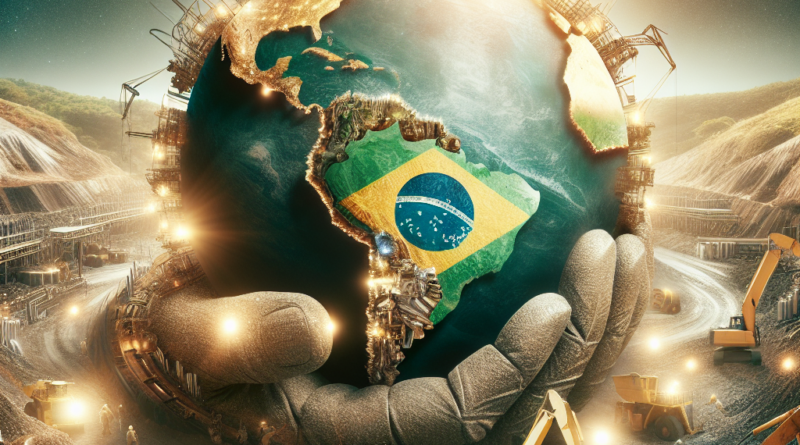Brazil’s Increasing Role in Rare Earth Production
The Emergence of Brazil in the Rare Earth Market
Brazil is emerging as a key player in the rare earth market, which is crucial for Western economies looking to reduce dependence on China for essential metals in green and defense technologies.
Advantages and Challenges
The country boasts several advantages, including low labor costs, abundant clean energy, well-established regulations, and proximity to key markets.
Notably, Brazil is home to the first magnetic plant in Latin America, which could ensure a steady demand for locally produced metals.
Despite these strengths, the rare earth sector in Brazil faces significant obstacles such as low commodity prices, technical complications, and investor caution, which collectively undermine Brazilian ambitions to rank among the top five global rare earth producers.
Production Growth and Government Support
With the third-largest rare earth reserve in the world, Brazil witnessed its first site, the Serre Verde mine, commence commercial production this year.
Supported by government incentives, production is set to expand, bolstering the global industry for refining and processing these metals.
It is estimated that Serre Verde will produce 5,000 tons this year, with prospects to double by 2030.
Global Supply Chain Dynamics
In response to Chinese near-monopoly, the United States and its allies are diligently working to establish an alternative supply chain by 2027.
Currently, China produces 240,000 tons of rare earths annually and processes about 90% of the global supply into permanent magnets used in various applications, from wind energy production to electric vehicles and military devices.
Technological Challenges and Government Initiatives
Technical challenges pose a significant hurdle, with many Western companies still refining processes for rare earth production.
To overcome these obstacles, the Brazilian government launched a 1 billion reais fund in February to support strategic projects in the minerals sector.
The goal is to develop an industry capable of transforming rare earths into alloys for batteries, wind turbines, and electric motors.
Future Prospects and Partnerships
Brazil aims to establish new mines by 2030, with the ambition to surpass Australia’s annual production.
The challenge for Brazil will be not only to boost production but also to build strategic partnerships to promote element separation technologies and further develop the supply chain.
For further insights, read also: This ETF has gained 123% in just 3 years.




